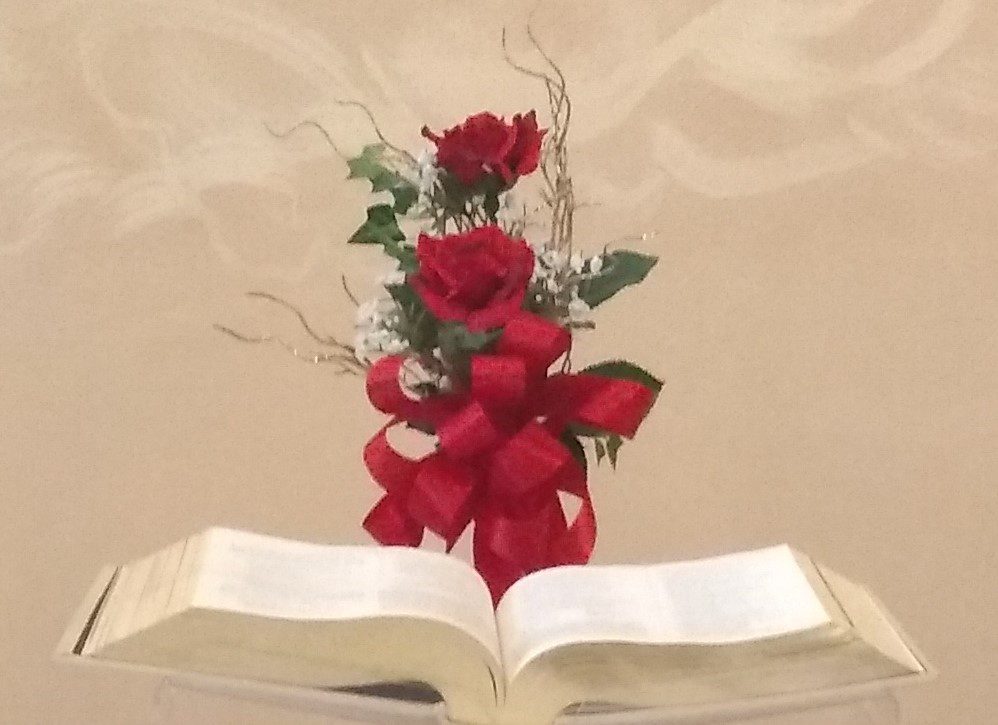Paul is reminding the people of God to remain humble and to stay out of sin. He reminds them
of how God saved them from slavery in Egypt. They passed through the Red Sea and left
Egypt, the land of slavery, behind. This crossing of the Red Sea was a prefigurement of our
baptism. “… By the cloud and the sea all of them were baptized into Moses” (v2). As it was
necessary to cross the Red Sea, so it is necessary for souls to cross the waters of baptism for
freedom from slavery. Baptism is necessary. But not just baptism. We need to follow Christ.
Practically speaking, we need to eat the food given by God. In the desert, they had manna and
quail. Today, we need the Bread of Life, the true spiritual food (v3) to help us in this desert of
life. Paul beckons back to the spiritual rock. He calls this rock Jesus, but what is the Old
Testament figure of this rock? It is the rock found in Exodus 17:1-7. Moses struck the rock and
God made water flow from the rock during the whole time in the desert. In the Old Testament,
Egypt is symbolic of our slavery to sin. The Red Sea is symbolic of baptism and our new life in
Jesus. The time God’s people spent in the desert is symbolic of our life here on earth with all
our doubts, distrust in God, and waywardness. I can’t imagine how many hours Moses and the
priests spent prostrating themselves and begging God to have mercy on His people. Crossing
the Jordan and entering the Promised Land is symbolic of us getting into our promised land,
heaven.
In the desert, God fed His people and gave them plenty to drink. But our drink here is the Blood
of Christ in the unbloody sacrifice of the altar. Jesus Christ is our rock that feeds His very self
today. The people of God brought the rock at Meribah with them wherever they went. Water
continued to flow from it to water all their animals and themselves. A single stone gave water for
all their needs. The Eucharist fills all our needs today. It brings hope. How good God is to us!
Yet some were not of good heart. They still intended to offend God. They were found not worthy
to receive such graces (v5). It is a reminder that we too remain in God’s graces; that we do not
intend to offend God and do the best we can to remain pure of heart. How we intend to use
God’s graces and interact with them plays a big part in our salvation. This is so important that
we do not take advantage of the Eucharist and make sure we do not receive the Eucharist with
mortal sin on our souls. Those who consciously persisted in sin “were struck down” (v5). They
never entered the Holy Land.
Paul notes it as an “example” (v6) to keep away from sin and keep our hearts pure. God was
with them and blessed them. They became prideful and were thinking that they were getting by
with something. But the snakes came and bit them (Num 21:6). We have a snake today that
bites us every time we sin. God does not make it happen; the devil does what the devil does. He
hates us and wants to cause us to suffer any way he can. It is the snake that bites us, not God.
At the heart of what Paul is getting at is false worship. This can take many forms. How many
things do we put before God and His ways? How much time do we spend with God? How much
time do we spend actively avoiding God? Some people actually do this. Paul even admits that
followers of Jesus were doing it: “arose to take their pleasure” (v7). They put pleasure above
God and so made it their worship. Whatever we put at the top in our life, we end up
worshipping. These are the snakes Paul is warning us of (v9). This is why it is so important to
make sure we go to confession often.
When was the last time you have been to confession? Jesus came to save us. He saved us
2000 years ago when He died on the cross for us. He saves us every day from our own sinful
inclinations, and we have hope He will give us His definitive salvation when we leave this earth.
He is so good to us. Why not go to confession today?

